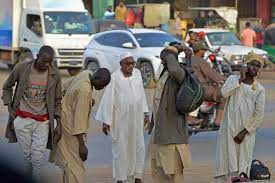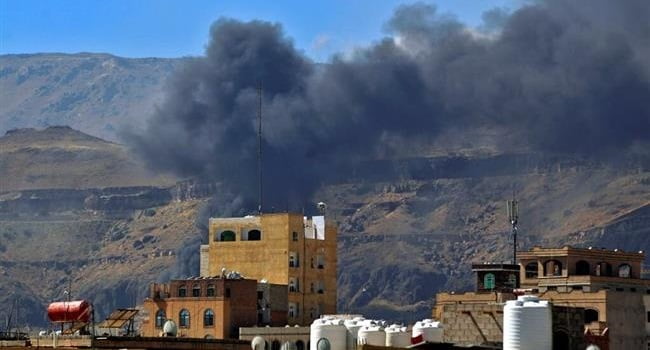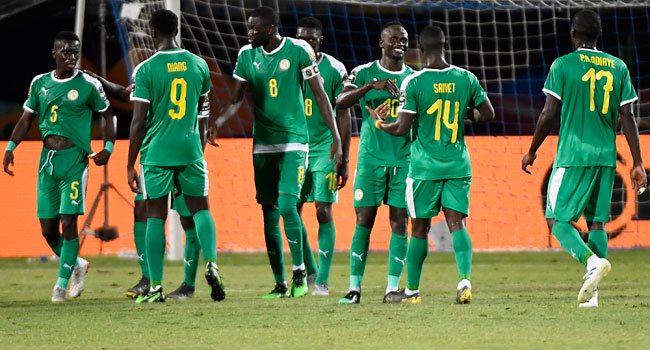As the death toll surpasses 100, fighting rages in Sudan
As battle between the army and paramilitary forces led by competing generals raged for a third day with the death toll reaching 100, explosions shook the capital city of Sudan, Khartoum, on Monday.
After weeks of power conflicts, Sudan’s army head Abdel Fattah al-Burhan and his deputy, Mohamed Hamdan Daglo, who is in charge of the potent paramilitary Rapid Support Forces (RSF), exploded in violence on Saturday. The two generals first came to power in a coup in 2021.
International calls for a quick ceasefire have been sparked by the violent combat, which has included airstrikes, tanks on the streets, artillery fire, and heavy gunfire in populated areas of Khartoum and other Sudanese cities.
The doctors’ union stated, “The death toll among civilians… has reached 97,” later adding, “dozens” of combatants had also perished. The number does not reflect all fatalities because many patients were unable to reach hospitals because of the fighting’s mobility restrictions.
Several security force fatalities and approximately 942 wounded were also reported by the Central Committee of Sudan Doctors, a different pro-democracy group.
The two sides accepted a UN plan for a window on Sunday to evacuate the injured, but the intense gunfire continued despite widespread medical requests for safe paths to convey casualties.
UN Special Representative Volker Perthes, who is in Khartoum, said he was “extremely disappointed” by the failure of both sides to abide by the humanitarian pause.
Several of Khartoum’s nine hospitals treating injured civilians “have run out of blood, transfusion equipment, intravenous fluids and other vital supplies,” the World Health Organization warned.
Fearing a protracted conflict that could worsen the country’s disarray and crush aspirations for a return to civilian rule, the violence has caused terrified Sudanese civilians to seek refuge in their homes.
Stopping vital assistance
The Janjaweed militia, which his administration unleashed against non-Arab ethnic minorities in Darfur ten years prior and which drew accusations of war crimes, was transformed into the RSF under the previous dictatorial president Omar al-Bashir in 2013.
An important requirement for a final accord intended to settle the conflict since the military coup Burhan and Daglo masterminded in 2021, the planned incorporation of the RSF into the regular army, led to the outbreak of combat.
Both sides claim to have the upper hand by claiming control of important locations, such as the airport and the presidential palace, though none of these claims could be independently verified. The two sides both blame the other of starting the violence.
Fighting in the western area of Darfur has resulted in the deaths of three UN employees from the World Food Programme, causing a “temporary halt” to all operations in a nation where one-third of the population need food.
As street fighting continued on Monday morning, booming gunfire and deafening explosions once more shook structures and rang across the streets of Khartoum, according to AFP correspondents.
Large portions of Khartoum have been without power, and the few grocery stores that are still open have issued warnings that they would close soon if supplies cannot enter the city.
From all across the world and the region, including the African Union, Arab League, and IGAD, appeals have been made to put an end to the fighting.
UN Secretary-General Antonio Guterres has warned an escalation in the fighting would “further aggravate the already precarious humanitarian situation”. US Secretary of State Antony Blinken urged the warring rivals to agree an “immediate cessation of violence” and start talks.
extraordinary violence
Despite widespread calls for a cease-fire, the two generals have shown no sign of being open to talking, each labeling the other a “criminal.”
Medical professionals have frequently appealed for safe ambulance lanes and a halt to hostilities so they can treat the wounded since it is still too unsafe to take casualties to a hospital on the streets.
The intensity of fighting inside the city, according to Sudanese expert Kholood Khair, was “unprecedented” despite the fact that Sudan has undergone decades of harsh civil wars, coups, and rebellions.
“There has never been this level of violence in the center, in Khartoum, in the history of the Sudan, certainly not since its independence,” she remarked.
Khair said RSF forces had “strategically” previously set up bases in “densely populated areas” so that the “high civilian toll would be a deterrent” in case of conflict.
Daglo later referred to the coup as a “mistake” that failed to usher in reform and re-energized Bashir’s dictatorship, which the army overthrew in 2019 after widespread protests.
AFP



